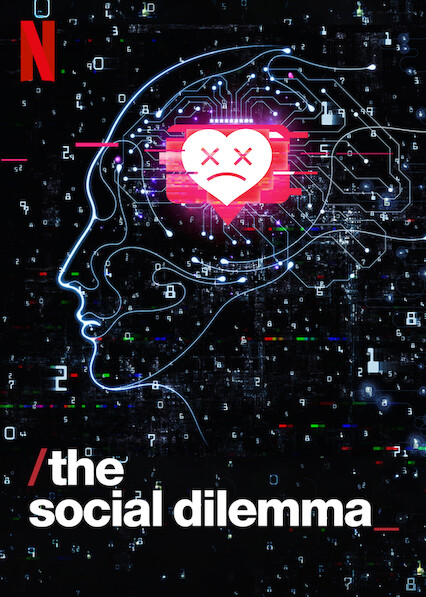Social Media: How Does It Affect Our Health?

October 20, 2020
On September 9, 2020, Netflix released a new docu-drama that quickly became the current number one rated film “The Social Dilemma.” The producer of the drama, Jeff Orlowski, takes a different and deeper look at the real effects of social media on teens and young adults. This documentary quickly spread across the United States and has become a popular topic, making users and people think.
Although oftentimes people do not think twice before downloading the newest social media app that has just been released, Orlowski calls social media the “climate change of culture happening visibly through our devices.” If people and users do not begin to realize the issue that is social media, it will continue to harm society more.
Ex-Google employee Tristan Harris says, “Social Media starts to dig deeper and deeper down into the brain stem and takes over kids’ sense of self worth and identity.” When thinking about the mental health aspect of things, The Social Dilemma has certainly made users and parents think about what these platforms could be doing to the users, not only resulting in extended hours of phone time, but also what it could be doing to their mental health.
Over the past few years, there has been an increase in the daily use of social media and time spent on our phones. A reporter from The Guardian said “A third of American adults, and nearly half of those aged 18-29, say they are online “almost constantly.” But, unlike the citizens of Brave New World, we’re miserable. As time online has gone up, so has anxiety, depression and suicide rates, particularly among youth.” Social Media has seemed to have a very clear effect on teenagers, lowering kids’ sense of self worth and identity, and increasing suicide rates and mental downfall.
Junior Ava Hammons said that social media has had an affect on her and fellow students’ mental health. “When looking at my feed and my explore on Instagram, almost all of the pages included female influencers and even others that I knew, that would make me think negatively of myself or my body. Social media has a way of nailing ideas in our head of looking a certain way with almost everything we see being photoshopped or posed. It took me a while to realize what the media and all of these apps were doing to my mental state.”
Social media was portrayed as an addiction by producer Jeff Orlowski, showing the people techniques and ways that it can draw users in more than they realize. The American Journal of Epidemiology said things like push notifications and the endless scroll on these top rated apps, it has created a feedback loop that keeps people drawn in.
“I one hundred percent believe that we are addicted to our phones, with being stuck in a pandemic and so many kids being quarantined, I think it got worse. Recently, I have had more conversation over text than face to face, which is awful. Our generation has gotten very comfortable with living behind a screen,” Hammons said.
When thinking of ways to limit the time spent on social media and cellular devices, there are many ways to decrease the outcome that has become so relevant in today’s world. Nobody expects users to turn their devices in and their accounts off, but some limitations would provide a more positive outcome. Starting with realizing and recognizing the effect that social media has on people’s mental health, is a step in the right direction. Limiting the amount of time spent on these apps and the daily hours spent glued to smartphones can also help. Producer Jeff Orlowski certainly made a break with The Social Dilemma, showing ways that it can have a severe negative impact on American’s across the world. If users can recognize the problem, they can begin to take steps in the right direction to save society and their mental health.
